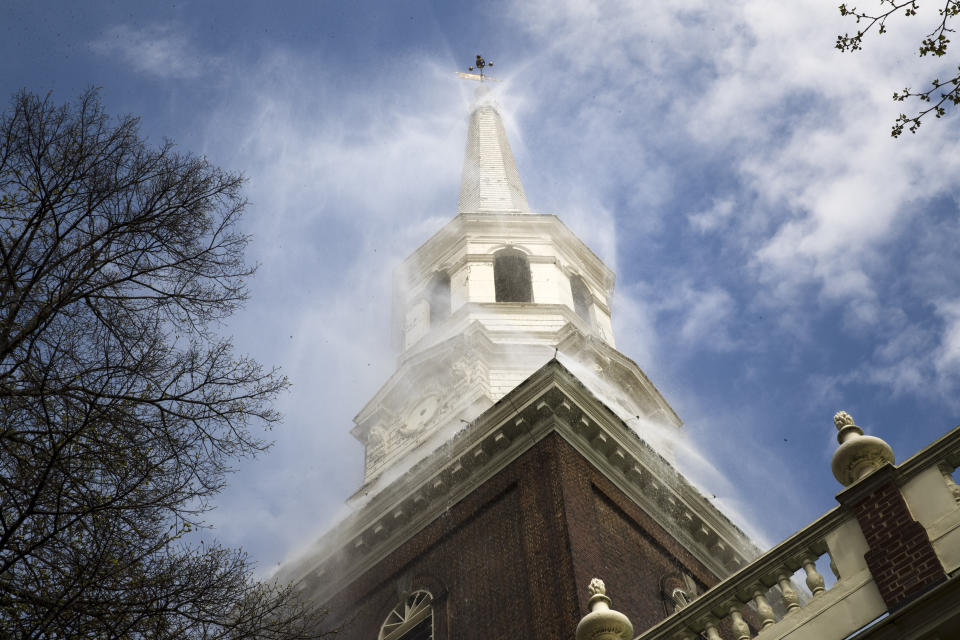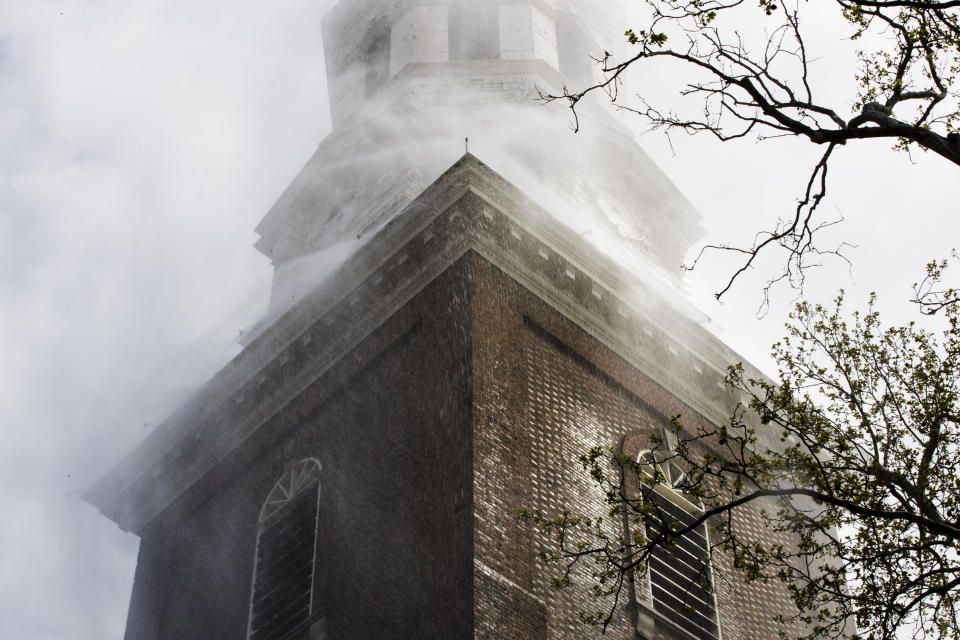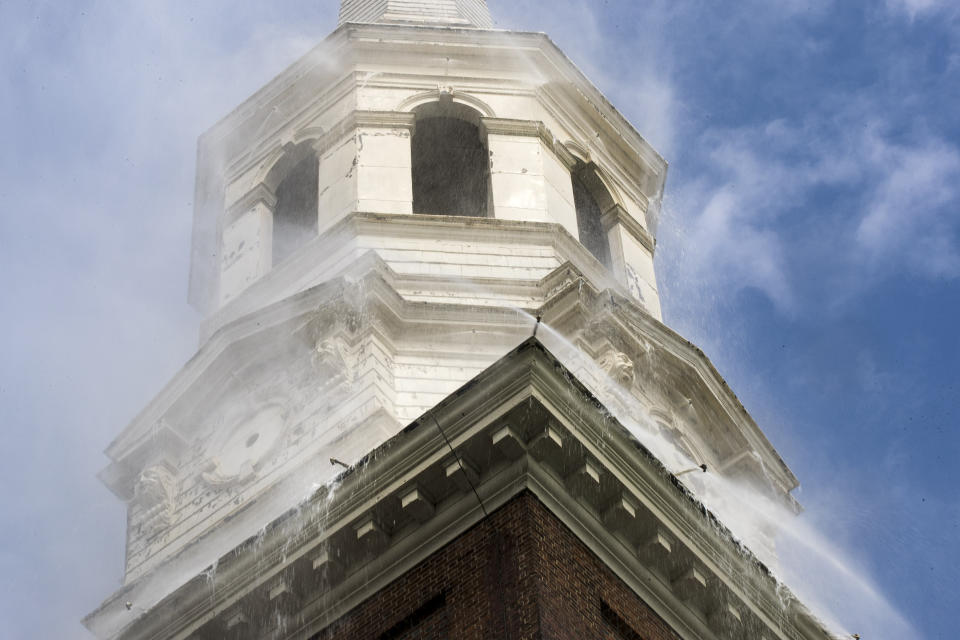Historic US church tests sprinklers in wake of Notre Dame
PHILADELPHIA (AP) — A sprinkler system check at a church that was frequented by George Washington and Benjamin Franklin drew a crowd Wednesday, with dozens of people watching as sheets of water poured from the 196-foot (60-meter) steeple.
Christ Church leaders breathed a sigh of relief at the sight: The system check showed that the church has done all it can do to protect itself from a fire similar to the one that tore through Notre Dame Cathedral in Paris this week.
"One reason we did this was to show symbolic solidarity with Notre Dame," said Barbara Hogue, executive director of the Christ Church preservation fund. "But it's also because we're about to start renovations here, too, and we thought it was really prudent to start by testing our fire system, to be sure that, in the event something happens, we were prepared."
The landmark Christ Church was founded in 1695 and has been in continuous use ever since. Besides Washington and Franklin, its notable congregants included other signers of the Declaration of Independence and Betsy Ross. Visitors can sit in their centuries-old pews or marvel at a spire funded by a campaign launched by Franklin in the mid-1700s.
The spire was struck by lightning in 1908, but the ensuing fire was quickly quashed by rain. In the 1920s, church leaders installed the first sprinkler system.
Because the spire is slanting about 22 inches (56 centimeters) off-center and there are other maintenance needs, the church is in the midst of a $3.1 million capital campaign. It has raised $2.5 million, which includes a $500,000 grant from the National Endowment of the Humanities.
"There's always that point where there's the difference between deferred maintenance and tragedy," Hogue said. "We're getting to the end of deferred maintenance and we really need to get this capital campaign going."
Checking the church's fire suppression system Wednesday was part of the pre-renovation preparations, but church officials hadn't planned to make it a public event until the blaze at Notre Dame. The fire, which destroyed most of the 850-year-old cathedral's roof and caused its 19th century spire to collapse, occurred while major renovations were underway. There was no sprinkler system in place.
"Many of the press called and asked us, 'What happened at Notre Dame, could that happen here?' said the Rev. Mark Safford, noting this was also a way for the church "to demonstrate how the great buildings of Philadelphia are able to protect themselves from catastrophic fire."
Tour guide Joseph Spurlock, of Free Tours By Foot, stopped his group of about 20 to watch the display.
"It's a good time to make a show of it: Don't worry. We have this under wraps," Spurlock said of the decision to publicize the test.
About 30 students from nearby Old City Day School and their teachers walked three cobblestoned blocks to watch the demonstration. The sight of a waterfall in the city thrilled the younger crowd.
"We had to be part of this," said Danielle Kinslow, the school's director. "It was a lot of fun for them. For the teachers, it was a chance to stand with Notre Dame."
The children were still excited as they headed back to school.
More than one teacher was heard saying, "Don't drink the water" as the group departed.




